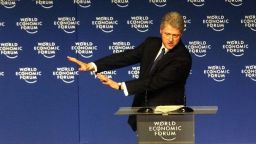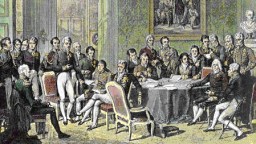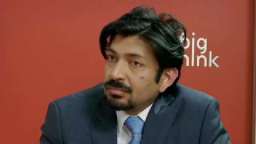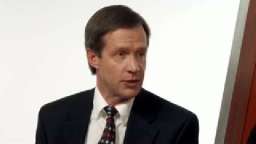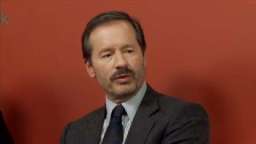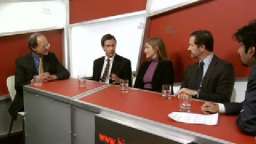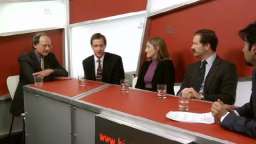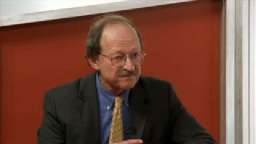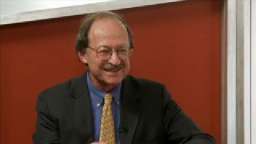All Videos
All Stories
Unless technology “offers a deeper meaning into your heart, into your soul, a deeper purposefulness, it’ll be vestigial, it’ll be gone,” says the film exec.
▸
3 min
—
with
Peter Guber describes how Michael Jackson taught him a lesson on storytelling using a mouse and his Boa Constrictor “Muscles.”
▸
3 min
—
with
The legendary producer describes watching Nelson Mandela open the hearts of a group of wealthy and hardened business people.
▸
3 min
—
with
Whether asking for a raise or pitching an idea, “emotionalizing” your case helps people metabolize the information of your argument.
▸
6 min
—
with
Within 10 years, everyone will have a digital copy of their genome for just $1000, and by comparing millions of these codes, we may find the cure for aging and […]
▸
2 min
—
with
Attempting to explain quantum theory, physicist Erwin Schrodinger proposed an experiment almost 80 years ago that would send PETA into a frenzy.
▸
3 min
—
with
The post-Napoleonic 1814 meeting of Europe’s heads of state provides a case study of exploiting divisions among your opponents during any sort of negotiation.
▸
2 min
—
with
In 1803 the U.S. negotiated probably the best real estate deal in history, taking advantage of Napoleon’s need for cash to fund his European expansion.
▸
2 min
—
with
This Big Think special series looks at what taste actually is—from both a scientific and sociological perspective—and why it is that we find some tastes so appealing and others disgusting.
▸
2 min
—
with
Most leaders fail by not knowing what their employees’ real raw talents are; they should invest most time to finding out and developing a person’s god-given gifts.
▸
1 min
—
with
Lionel Jensen, Associate Professor of East Asian Languages and Cultures, addresses the claim that Chinese currency manipulation is at the heart of America’s fiscal woes.
▸
3 min
—
with
Scott Appleby, Professor of History at Notre Dame, identifies the causes of anti-Muslim sentiment in the US as follows: misinformation, the economy, and crises.
▸
10 min
—
with
Michael Desch, Professor of Political Science at Notre Dame, speaks to the importance of the Israeli-Palestinian Peace Process to America’s national security interests.
▸
13 min
—
with
The conventional wisdom that all growth is good is not based on real science, empirical data, or business reality.
▸
3 min
—
with
In the current weakened economy, financing isn’t plentiful and fall-back jobs are scarce. But there is still plenty of opportunity out there for entrepreneurs.
▸
2 min
—
with
The physicist and comic book enthusiast outlines technologies that were once imagined by science fiction writers that have now found social utility.
▸
3 min
—
with
Medical science has developed a greater awareness of the link between hormonal changes and cancer. Could this information explain not just why we get the disease, but when?
▸
4 min
—
with
Medical science is no longer in the dark about how certain cancers are able to stage a comeback. But shedding light on the cancer stem cell theory has forced us […]
▸
4 min
—
with
The previous director of the National Cancer Institute wanted to banish suffering and death from cancer by 2015. Current director Harold Varmus says this claim was not based on reality, […]
▸
5 min
—
with
Seemingly every year there are new reports that something we consume or use on a daily basis is carcinogenic. But what exactly does that mean on a biological level?
▸
4 min
—
with
The Cancer Genome Atlas project, already several years underway, is transforming the way scientists think about and treat cancer.
▸
8 min
—
with
There are some dramatic cases in which cancers have regressed or gone away on their own, which raises the bigger question of why some early cancers progress and others don’t.
▸
8 min
—
with
Cancer Panel: Why do virtually all men over the age of 90 develop some amount of prostate cancer whereas heart cancer is practically unheard of?
▸
4 min
—
with
Author Kevin Kelly, along with Tao Yang, Professor of Computer Science at the UC-Santa Barbara, led a panel discussion on the uses of computational thinking in search technology at Big […]
▸
28 min
—
with
Early science fiction predicted jet packs and flying cars—a revolution in energy. Instead we got cell phones and laptop computers—a revolution in information.
▸
2 min
—
with
The Foreign Affairs editor explains why China’s growing influence in Africa could be a good thing for U.S. and the world.
▸
1 min
—
with
Will a new “Beijing consensus” replace Washington as the dominant economic role model for the developing world, or will the democratizing powers of technology put an end to authoritarian state […]
▸
4 min
—
with
Washington will have to learn to lead by example and competence rather than mere assertion of dominance. And the American public is going to have to “grow up.”
▸
2 min
—
with
Journalist, philanthropist, entrepreneur, and astronaut, Esther Dyson describes how the future of search will be verbs, not nouns, as people are looking to take direct action with their queries.
▸
5 min
—
with



